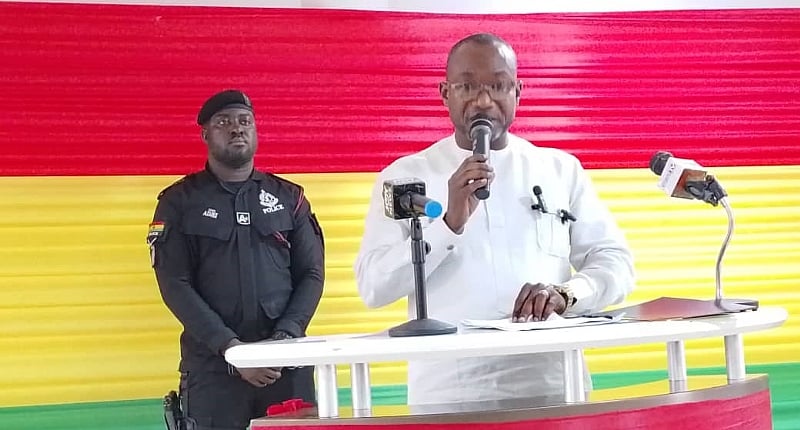The Bono East Region of Ghana is grappling with a significant public health challenge, with over 6,000 reported cases of typhoid fever. Mr. Gyan Lamptey, the Regional Environmental Health Officer, has linked this alarming statistic to the persistent practice of open defecation prevalent in the region. Despite ongoing public awareness campaigns highlighting the health risks associated with open defecation, a disheartening number of residents continue to engage in this unsanitary practice. This behavior fosters the spread of fecal matter, contaminating water sources and food, creating a breeding ground for diseases like typhoid. The situation underscores a critical need for behavioral change and improved sanitation infrastructure within the region.
The gravity of the situation prompted Mr. Lamptey to issue a stern warning at the Bono East Regional Coordinating Council’s Maiden Medium Term Development Planning meeting in Techiman. Expressing deep concern over the widespread open defecation, he urged Municipal and District Assemblies to implement and rigorously enforce sanitation by-laws. These by-laws should address waste management practices, promote the construction and use of latrines, and impose penalties for open defecation. Strengthening local governance and regulatory frameworks is crucial to curbing this detrimental practice and safeguarding public health.
Beyond regulatory measures, Mr. Lamptey emphasized the importance of individual responsibility in maintaining hygiene. He advised residents to adopt simple yet effective practices like washing hands with soap after using the toilet. This straightforward measure can significantly reduce the transmission of fecal-oral diseases like typhoid. He further urged a shift in community attitudes towards waste disposal, advocating for responsible waste management practices that minimize environmental contamination and disease transmission. Community engagement and education are key to fostering this change.
Concurrent with the sanitation crisis, the Bono East Regional Minister, Mr. Francis Owusu Antwi, took steps to address the broader development challenges facing the region. He established a 23-member council tasked with overseeing the region’s holistic development. This council, comprised of representatives from Municipal and District Assemblies and other key development stakeholders, will play a crucial role in planning and implementing strategies for sustainable growth. This integrated approach to development recognizes the interconnectedness of various sectors, including health, sanitation, infrastructure, and economic growth.
The council’s mandate extends beyond planning to encompass project monitoring and supervision. This oversight is essential to ensure the quality and efficacy of physical development projects, preventing substandard work and maximizing the impact of investments. By holding contractors accountable and maintaining rigorous quality control, the council aims to ensure that development projects contribute meaningfully to the region’s progress. This proactive approach to project management seeks to prevent resource wastage and promote sustainable development outcomes.
The challenges facing the Bono East Region, particularly the typhoid outbreak and the prevalence of open defecation, highlight the urgent need for multifaceted interventions. These interventions must encompass strengthened sanitation by-laws, enhanced community engagement and education, and a commitment to responsible waste management practices. The establishment of the development council signals a broader effort to address the region’s interconnected development challenges and promote sustainable growth. The success of these initiatives hinges on collaboration between government agencies, local communities, and other stakeholders. By working together, the Bono East Region can overcome these challenges and build a healthier and more prosperous future for its residents.


